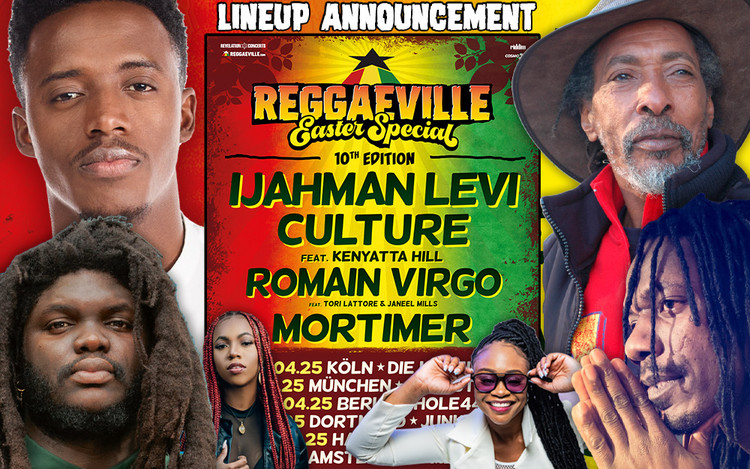Interview with Godzilla Boss & Mhebo Jheanz - Unity and Strength Inna Di Dancehall
05/11/2024 by Gardy Stein
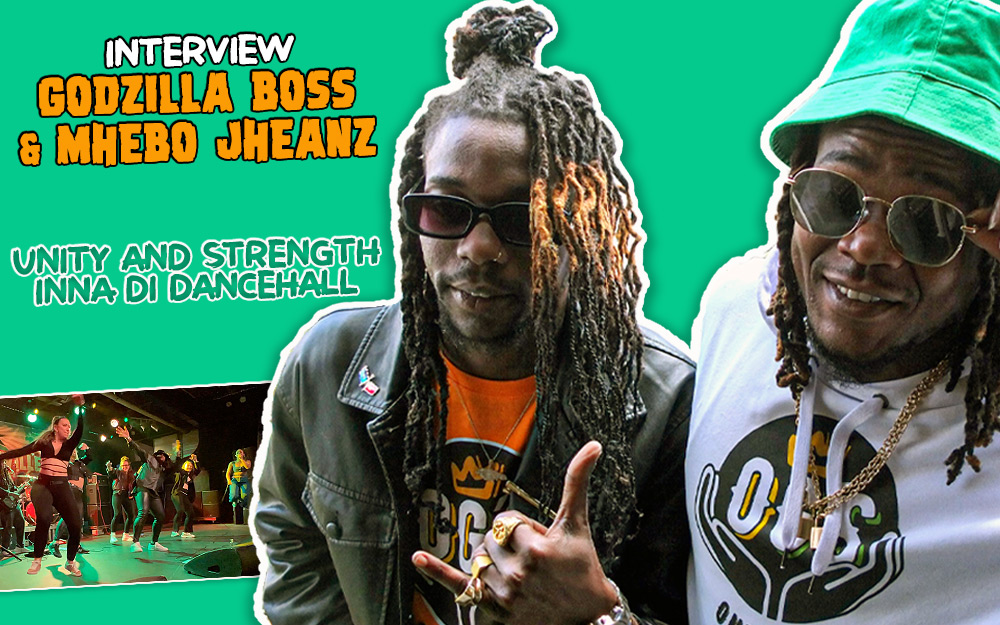
"Dancehall… you haffi be in the streets, that's where everything is happening!" (Godzilla Boss)
In Reggae, fans and reporters are often entirely focused on the producers, bands, singers and instrumentalists who create the music we love. Dancing rarely features in the public discourse about the genre, although it is an important part of the enjoyment whenever two, three, many people gather to hold a vibe at concerts or parties. Reggae-offspring Dancehall, on the other hand, already carries the bodily movement as constitutional element in its name, and indeed dancing is such an important part of the culture that the one can't exist without the other. This energetic relationship has impressed and inspired people around the world, and Dancehall dance classes are popping up everywhere from Poland to Finland, from Japan to South Africa. It is about time we shine a light on those who act as global ambassadors for this often underrepresented part of Caribbean culture – the Jamaican dancers who bring across the creativity, excitement and impeccable style that only Dancehall offers.
Meet Nicky Trice aka Godzilla Boss and Damian Smart aka Mhebo Jheanz, two exceptional talents who bring their skills to Europe for several years now. Reggaeville met them at the invitation of Lady Lis, one of the most active dance instructors and cultural connectors in Germany. Godzilla and Mhebo take us from the Bogle beginnings all the way to the contemporary challenges faced "ina di Dancehall" – an educational excursion you shouldn't miss!
Even though many people know you already, let's start with an introduction. Where are you from, what is your occupation and what are you in Germany for?
Godzilla: My name is Nicholas Robinson, known as Nicky Trice aka Godzilla Boss. I represent from Shelly Belly Clique, MOB, Rifical Team and now my own team, OG'S. My occupation is just entertaining, dancing and as recording artist. Yes, and we never work for nothing than just dancing!
Mhebo: Yeah man, brrrrp! (laughs) My name is Damian Smart, otherwise known as Mhebo Jheanz. I'm from Portmore, from the Ghetto Legacy Team. We do this ting from '09 coming up, you know, from the mid-school era now to the new school. Me frequent ina Europe since four years, travelling around a lot in Europe and now me stuck ina Germany (laughs), but we travel back to Jamaica soon.
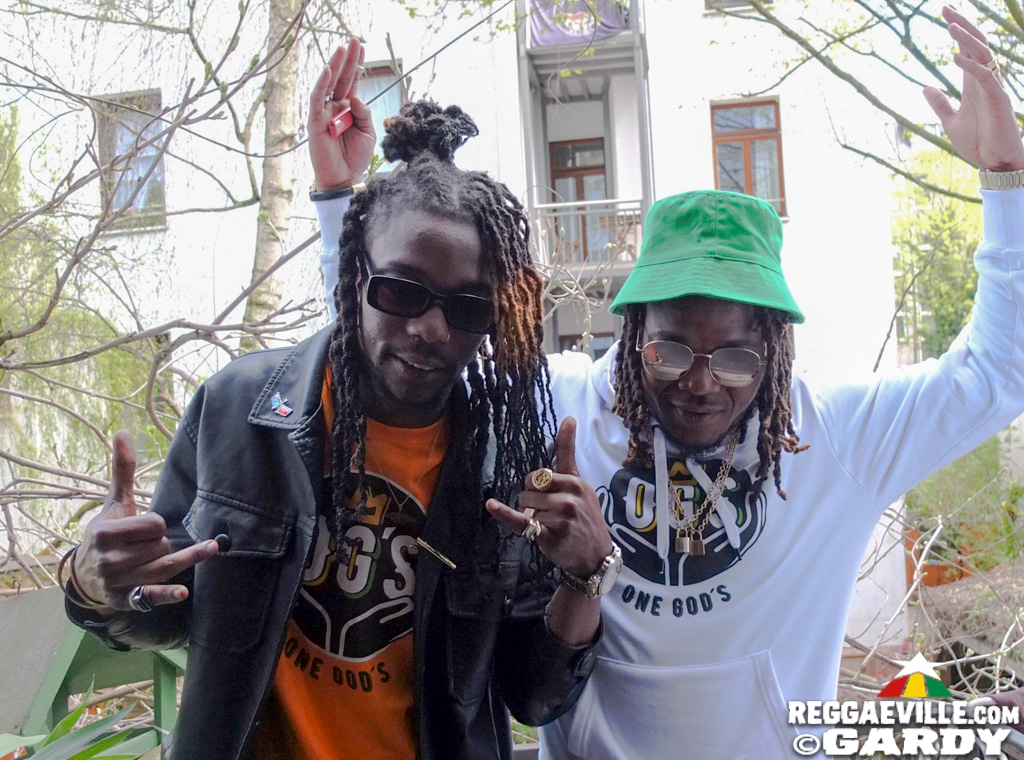
How did you start to grow in the dance scene? What were your first connections?
Godzilla: For we still, me and my friends, we grew up ina it from we are a tender age, as kids, because Bogle aka Mr. Wacky, he lived in Jungle, and Jungle is like five minutes away from we. John Hype lived close to we too. And them Shelly Belly, Blazé, Shankle Dip, all of them was around John Hype. Each time these dancers come and dance, it's like we would get more inspiration. So we a dance from we are kids, it's just de inside a we body from long time, it's just natural. We just grew up into dancing, we teach dancing going to high school, Norman Manley High School, so we also teach dancing while we going to school and stuff. So, from ever since, dancing and music just de inside a we. And Jamaica de pon a whole different level still. Music and dancing is a part of we, cause it's not only about the dancing and the music, a di people dem and di culture a di people dem weh it's just natural too, you know what I mean? Unique!
Was it the same in Portmore?
Mhebo: Yeah, man! A so di Dancehall ting come up. Based off a how we living, you know, the daily routine, like… pain, struggle, this is how we develop. The move and the flow ina di body, it come from we daily living, like, for instance, time you just chilling and the music come on and just the words of the music, what the artist say, we find this flow, this groove, you know? So, as me say, di Dancehall ting come from we daily lifestyle. From we younger, we used to do more music, like the bigger guys, they sing and call us and we sing with dem. This time, we're like five, six, seven years old. And then when me reach like 15, we start do the dancing. And I like this more, so I continue with this more.
And did you start on your own or with all these other guys in a crew?
Mhebo: I start with two other youth. When we just start, the three of us, we call the group Dainty Crime, and then we change to Playboy (laughs), then we change to Ghetto Legacy, and so the group come together and we get more members, like, 2009 going to '10, this time we had like eight members in the team.
Where did you start to meet, to practice and create moves and so?
Mhebo: Alright, I will go right down from the turd now, from de root a di grass (laughs). We born and grow up ina di east, in St. Thomas. And deh so we start with two other youths. Then, other members start come from other parish, they go to school with my smaller brother and stuff, and they come over. Then we left to Portmore, because when we're in Portmore, it's closer to Kingston, where everything started. And then from deh so – brrrp!
And you, did you start as a crew as well, dancing, or did you start with the music, with singing?
Godzilla: Growing up, we used to love the dancing, but I used to do the music also. I used to dance with my friends dem a lot, like SriLanka, he was one of we bigger bredda always around we and ting. We have Crazy Hype also, and them were also around Shelly Belly. Shelly Belly and SriLanka, they are first cousins. So, when Shelly Belly start Bermuda Clique, it was we and some likkle man, Raccoon, Torch, Frass, a lot a we did deya around Shelly Belly, but we were still kids, so we grew up ina it and ting, so we always see the old school dancer dem. Then middle school come and transform, when we leave Shelly Belly 2004, '05. Then when SriLanka and Crazy Hype set up MOB, they were skating on a bike or a motorcycle or a scooter at the time, you know, and we start go a party with them, but you don't know, we still likkle kids same way. So, Crazy Hype was really the bigger one around, and SriLanka, we call him Daddy Pimp (laughs). So them go deh and dem deal with it, and in 2007 they win JCDC World Reggae Dance Festival, the first competition in Jamaica that ever come. And it was Crazy Hype, SriLanka, Ringo and Raccoon. Raccoon is also Shelly Belly and SriLanka cousin. Raccoon was also MOB, but then he still stayed over by Shelly Belly.
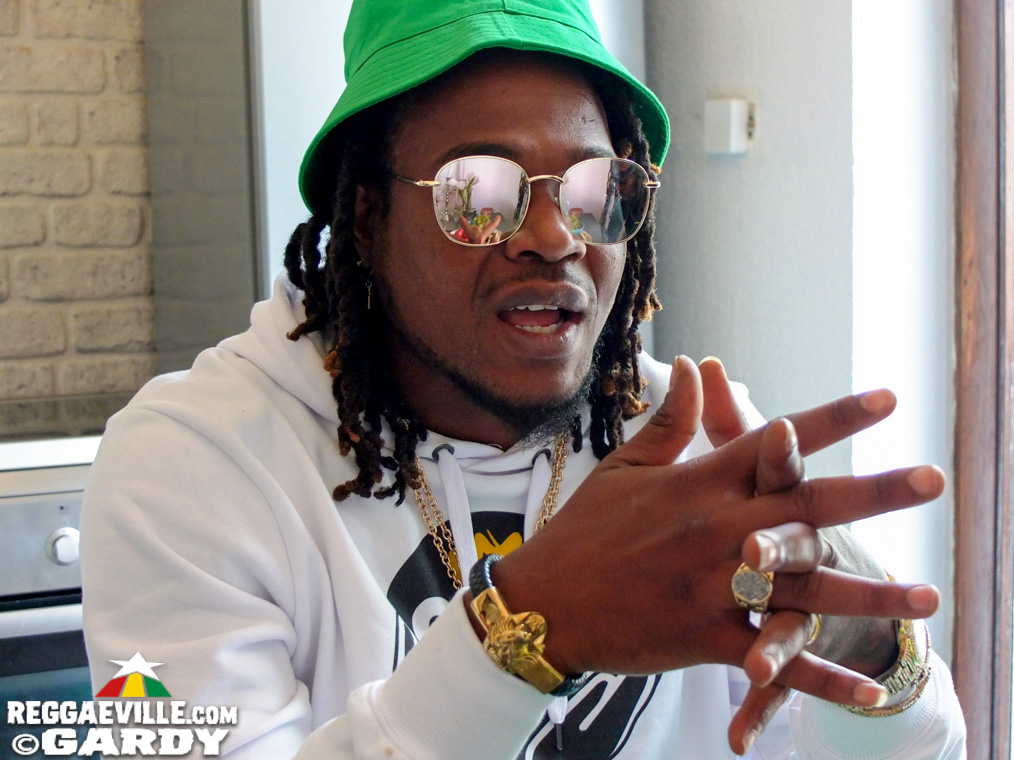
So, we are just a one family long time, it's always a group a we, we just come and change the game in a different way. Because back then, you have call and answer when you have dancers, because as Mhebo said, our lifestyle, everything we do is we lifestyle, for you to speak about it also right now, we didn't know back then this could be happening. We wanna dance for fun, we wanna enjoy, we create dance from emotions, pain, what's going on… the struggle. Dancehall is about the inner city, the garrison… like how you see outside (points to the window), in the backyard, you'll see some chicken or dog dancing, so it's just a lifestyle. It's always a group a we, and it more unique. Sometimes you have single dancers, but it more fun fi know seh you have some bredda around you weh you can call family, you know what I mean? You a go have some people weh loyal and stuff, but tings and times will show you the loyal from the non-loyal. When you have a group of people around, the love me see… me nah just classify them as friend, me say him a me bredda, a real bro that. When me say bredda, you have to be real to di ting, you see me! The people around you, you can know seh dem can stick fi you, and not just dancing wise. If one go up, everybody a go up! And we love to help people and the ghetto weh we come from, and the garrison we come from, it's always about unity and strength, this is Dancehall. Unity and strength to give you power.
You said that you observe a lot, that it's about emotions and the pain and everything. Now, if a new song comes out, how do you create the dance, the choreography, the new moves?
Mhebo: Yeah, because the artists they meditate just like the dancers, as we say they sing, we dance, it's always like this.
Godzilla: Or we dance and them sing.
Mhebo: Yes it's like… we think the same way, so they sing about what's going on in the ghetto and even though we travel now, we still know this, we feel this, so it's like he come with a new song and we say 'Yo, we feel this!', and this is how we create.
And do you sometimes build the dance moves based on the lyrics of a song?
Godzilla: We only take the lyrics if we are doing a choreography. Dancehall is not about the lyrics, Dancehall is about the beat! Without the dancers, the producer can't build the beat, without the producer the artist cannot sing, without the artist, the selector cannot play, you understand? So, as important as the producer is and the artist is and the selector is, the dancers are important also, because without the dancers many things could not happen. Even if it's not a dancing song, if the dancer is not dancing on the song, it's like… for example, you're in a party and you're there just drinking and it's boring. But when you're in a party and see dancers dancing, enjoying themselves, you will more enjoy yourself also. Dancers touch everything! Dancers can dance, dancers can sing, dancers can act, dancers can… just give us a movie to go in and say we're going to star it. We never act before, or we never have the females as actress in Jamaica, but give us a show, and we're going to act it and we're going to be the main act. This show is going to be phenomenal! So, as important as the artist, producer and selector is, dancers haffi get the same acknowledgement. Not just by teaching dance class. Dancers to get booked to go and be on a stage show with Christopher Martin, or Rihanna or whoever… Because dancers, our thing is going that side. John Hype set Pon Di River, Pon Di Bank, and Elephant Man sing about this song, he go even on TV. Dancers don't see that stage, dancers don't get that pay. Like, these things, if we say Leggo The Streets, if we say Goosebump, if it's so nice and unique and it catch an artists' ears and him hear it, he might sing about it. This song might get acknowledgement, and the dancers get nothing. Just sit down, travelling, just trying to get work to survive. The selectors, they fraid to play even the dancers dem music. If they're trying to help, you have some real selectors that will say, these are dancers that are waving the Jamaican flag a different way in the world. Because we're in the world and we're still spreading Jamaica Dancehall flag everywhere we go. And them in Jamaica don't know what we are doing, only if we post something.
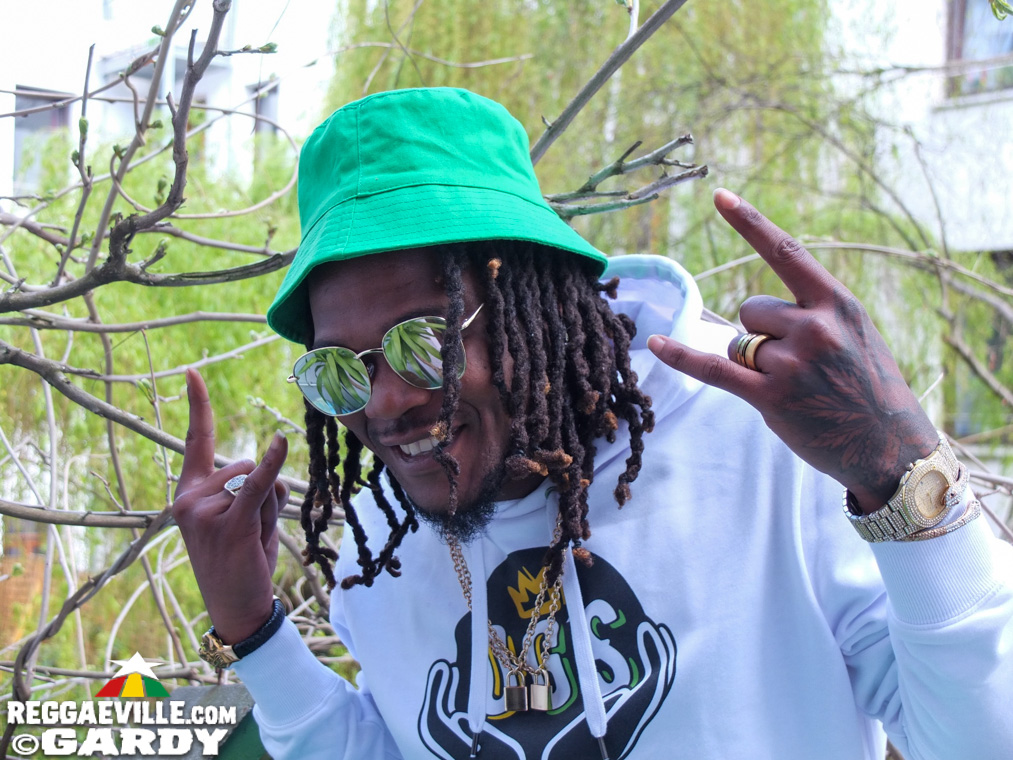
And how do you think this strong connection developed between Dancehall and dancers? Because, for example, the Ska and Rocksteady era, they also had the dance, it was an important part of the genre, but when Reggae developed, it didn't have that so strongly, it was more about the music and the message. But in Dancehall, the connection was there right from the start...
Godzilla: Yeah, man, because as me tell you, Bogle, him a di man weh really start this Dancehall in the '80s. And Buju Banton a di first reggae artist to sing a Dancehall music, when him say Bogle. Bogle Dance is a dance and also a person. So, everything start from Bogle. If there was any other else dancer in Jamaica, you will never get the highlight weh Bogle get, because if a commercial to come, you have to be around Bogle to go ina it. If an interview to come, you haffi be around Bogle fi get it. If a stage show come, you haffi de around Bogle, anything with dancing, you haffi be around Bogle fi get it that time. But while Bogle was there, you have a lot of dancers, like the Ding Dong and the Ravers dem. You have some Ravers now, there are some young Ravers from 2014, and we will still classify them as one Ravers, because a one family dem, a one love, one unity. Ding Dong get some young youths around him, and him was a dancer. Ding Dong still is a dancer, but him do music now, so him change it in a way too, fi show a dancer is not only a dancer, we can do more than one thing. Persistence is the key to progress, you know what I mean?
Did you ever have instructions in a way or did you just like copy what you saw out in the streets?
Mhebo: Yes, a so it all start, in a way it all start with Bogle Dance, as he say, it a di first thing we learn flow from, and then we start to create, cause Bogle come back and say, "Do your owna dance!" This is how we start create.
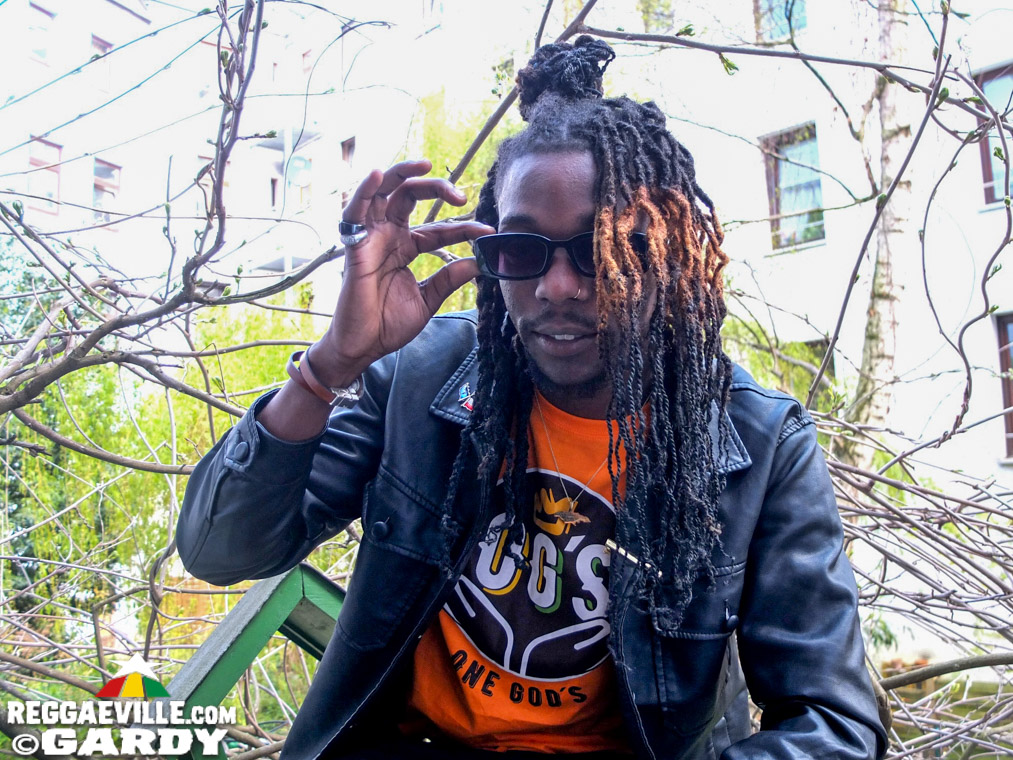
What does it take for a dance move to become really popular? I mean, you have some that everybody know, like Pon Di River, Helicopter, so what does it take for a dance move to really spread?
Godzilla: A dance move haffi spread! The dance have a feeling, the dance buss through Dancehall cause Dancehall was a gateway, the party, the streets. For example, check how much dance through the years, so much dancers have hit steps, but if you check in Dancehall, you're not hearing it. You see, if this dance cyaan make you move… you have some people weh can't even dance and come fi just model and pose and stuff, dem nuh know nuttin bout dancing and just come to hype and throw some money, them just want one dance weh them can say 'Hey!' and hype themselves.
Check the dance dem in Dancehall you hearing weh everybody hear di song, dem will move. It's something easy, it's something that have a meaning behind it. It's why them create it, it's how we create. Maybe to what the name of the dance is, it relate to somebody, it relate to how you feel, it relate to your emotion, it relate to something. And then, it just start get viral, somebody do a video at a dance one day, maybe dem de pon di block, dem HQ, on a dance and dem hold an enjoyment, and somebody just film him and put it up, and through the feeling in the video, it just went viral! You have artists now weh start sing bout it, sing bout the dancer, and when the artists sing bout it, it help give the dancer a little more push. When they give that dancer a little more push, it now start circling, everybody start doing it. The musicians, them start singing, the selectors, them start playing, the dancers, them start doing it. You deh a Jamaica, and somebody in Israel put up a video doing it, and you're like, "Whoa, somebody did that, Israel was there?" (laughs) So, these are when you know seh dance big, big really.
What are some of your moves that became really popular, some moves you created?
Mhebo: We create move like Buckey Bounce in 2009, and in 2012 going into 2013, this move was already doing well in many, many countries. So, it's like the dance move buss before us, then, because many people doing this move and they don't know it's coming from Ghetto Legacy, because just as Godzilla said before, it have this feeling, you know? Like, as you see it, you like it, so it spread away before us. And then, like 2016, '17 our team start to get pushed from this move. This was our first hit move, Buckey Bounce. As I say, this move was from 2009, and today, you still see this move everywhere. Not just Dancehall dancers do this move, HipHop dancers, Afro dancers, they all have this in their choreo.
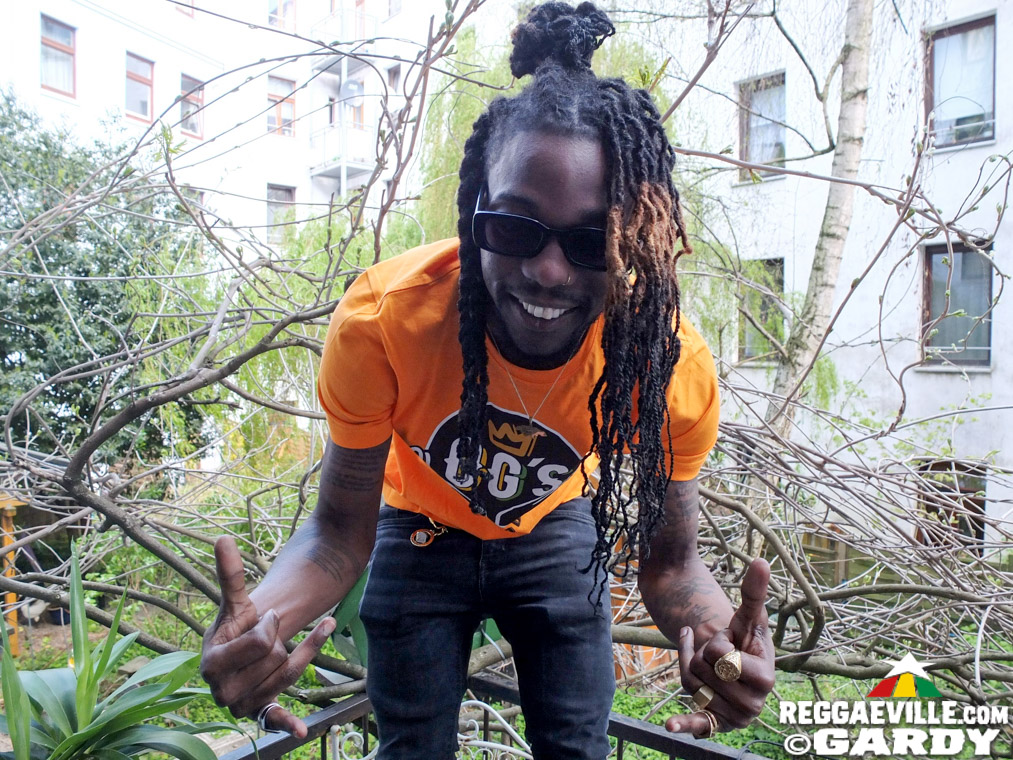
Is there a competition between the different dance crews?
Godzilla: In everything you do, there's competition. Back then there was no competition because there was not so much dancers. And we were there around from those days, because I'm from Shelly Belly, Bermuda Clique. Shelly Belly was more the creator, but SriLanka also was creating a lot, so when we leave on to MOB, we have a lot of steps that inspire middle school. We also put a history in dancehall. These dance group you see with choreography now in dancehall, this is what MOB did. We were the dance group that came with choreography in the streets of dancehall. We have dance steps, from MOB that hit like Calm Dem Dung, SriLanka, Crab Up, Motion, MOB Rock, Happy Feet etc. We move on to Rifical Team from 2012 because we depart from MOB in 2011.
When we say we also do music, we are the ones that sing the song So Rifical (sings), you can type in MOB and the title on YouTube and you can see it. This song, we were the first dancers to also on Reggae Sumfest, in Mobay, to sing and perform this song in 2011. So, we leave MOB 2011 and start our next group with five members, SriLanka, me Godzilla, One Don, Ramos, TJ, and we went together with some dance group named Elite Team in 2012. And we are just exiting a middle school era, so we come with a different groove. We come with grooves like Cheer Fi Di Girls Dem, Old Mansa, Who Does That, Godzilla Godzilla, that's a dance I created in Russia, in 2014. And I write the song for me and the artist, Future Fambo, he sings the song with Beenie Man, Rum & Red Bull (sings).
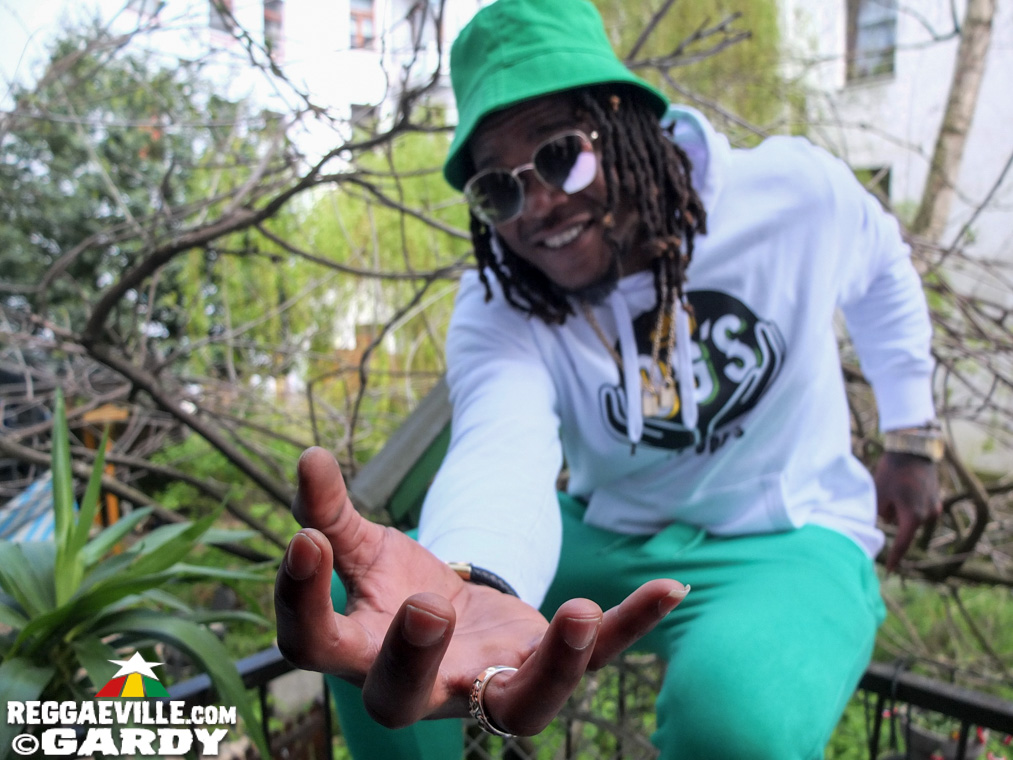
And then we start to pursue it, we have a lot more steps from Rifical Team now, same way. Now I say OG'S, and we have dance like Hype Yuh Self, I create here in Germany, I sing the song with Sanjay. Also, we have steps like Ready Set Go, and we have Keep It Moving, I also did now in Germany again, and the song was record here in Germany with Oxy. And now we have the Party Nice song, and through that we haffi teach the Party Nice dance. So, we been creating a lot of things all over di years, we create simple dance fi di world, an we a create dance fi people who love di technical part a it too, so… dancing is not just a craft, is something weh we love, so that's why it just easy fi we.
You mentioned a Dance Contest in 2007, do they still have it?
Godzilla: JCDC! Yes, they still keep it every year, then also two more, like Tastee's Talent Show and Dancing Dynamite. These are only for dancing.
And what do the winners get?
Godzilla: When we win JCDC, we get one million cash price (around 5,000 €). You get a trophy, you might get road shows, you might get some performance, dem line up a lot a works fi you also.
Out of Jamaica, do you know of any exclusive Dancehall dance events, apart from Dancehall Queen contests?
Godzilla: You have a lot of festivals ina di world, but as mi a tell you, dem don't treat di dancers dem di right way. Di only ting fi dancers we have, dat's why we haffi love di organizers dem and di promoters dem, if a Europe, if a Russia, if a Japan, anywhere, South America, Canada, England, anywhere, you understand, these promoters is the ones dem now… because the music used to sing with di dancers dem, the song dem get popular, but you have a dancer behind it. So when di people dem discover the dancers dem, the dancers dem don't only go to perform this time, dem start come fi di dancers dem fi come teach, so nuff time di organizer dem keep a dance festival, a dance camp, dance classes, so when this happen, these things happen for dancers.
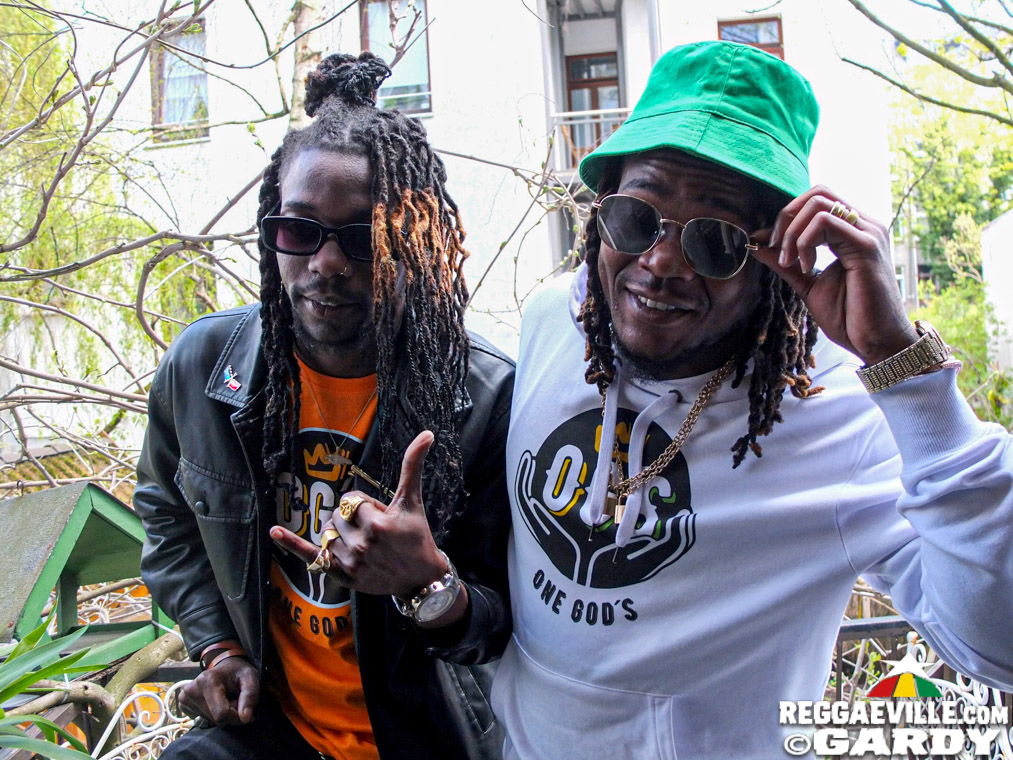
And is this the only way you can make an income, like, you can live from your craft?
Godzilla: Yeah, but we could live better if dem treat us like an artist as dancers. Like if an artist is going to this Rototom Festival and getting this amount of money, the dancers can go on that stage show and get this amount of money also, because dancers as I'm telling you, we are also artists, we have the full package. We have music that's playing inside a di world, we have dance that's inside a di world, and I told you, if you give us our script to a movie right now, it's going to be phenomenal! Spectaculocious! (laughs)
Do you think it's more about the artists who don't invite the dancers to the stage shows or is it the organizers of the festivals?
Godzilla: No! I cannot blame di organizers dem, because the artists have a lot of powers. As an artist have a number one music or a music that's playing so popular or a trending artist, if I need to come at his place with my dancers, a selector, we come with a petition to go a tour with we. So, it's simple, that's why we have to respect these artists that stick out fi dancers like Spice, RDX, Delamar, so you have a lot of these artists who do the thing. You have even male artists bring around female dancers, travelling with them, but it's just a few of them, it's not all a dem.
Boom Boom is a selector, and sometimes him would carry two dancers from the streets go ina di parties dem overseas weh him book for. If nuff more artists or selectors would do this, it would be good! You have two more, you have two video person from the streets, them called Two Grand and DJ Scrappy, they film Dancehall videos and they help a lot of dancers to travel.
Richie Feelings, Gary Chunks, Shampoo, these selectors back then, they are still popular now. We cannot leave out dem name ina it, Fire Links, he is also a big asset in Dancehall that time when him come out too, him help a lot of dancers, him produce lot a artist dancers, him have big party!
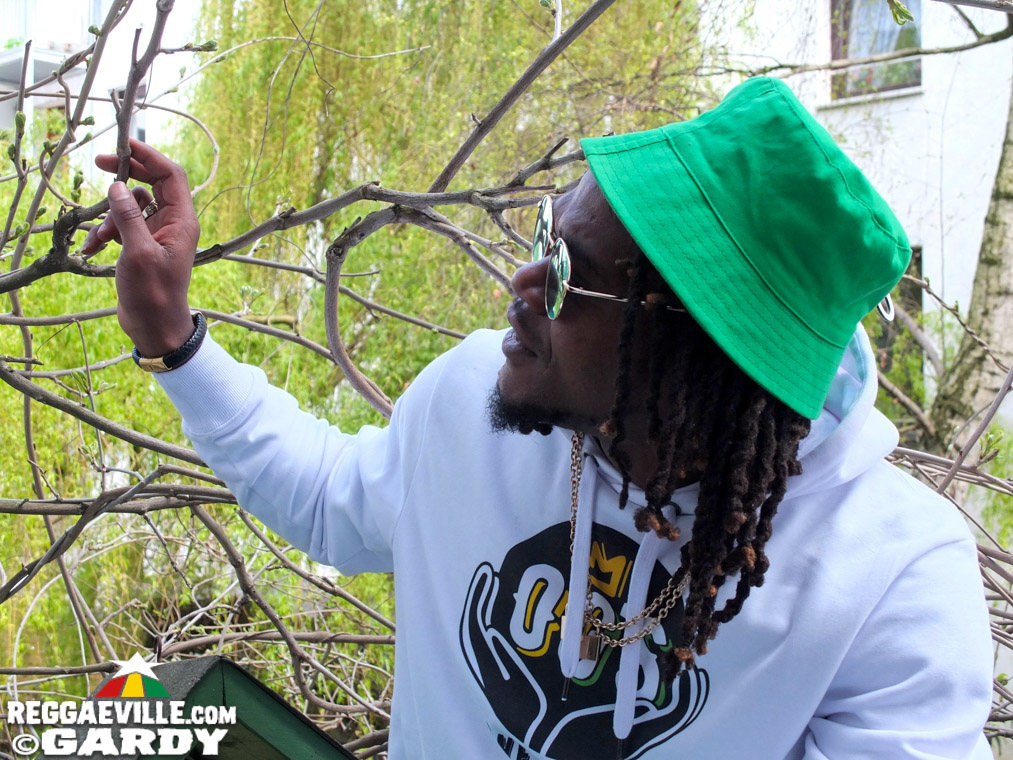
On your Instagram, you're posting a lot of videos or invitations to the dance classes you give here in Europe, and it shows mostly female dancers. In Jamaica, from my own experience or from what I see from videos, there are more male dancing groups. How do you explain this difference? Do you ever teach male dancers as well?
Mhebo: From the first time me reach a Europe, I start to adapt to this, I realize it's more female dancers here. Coming from Jamaica, we used to have more male dancers around us. The dance we do, the girl can do the dance we do too, but they do the female version, and they dance together, so I dance together with my friends. It's always more guys, I create with them, I teach them. And then when I come here and I get a big workshop with 40 people, and when I check, it's not one dancer, not one guy. It's just girls! (laughs) Yeah, so, I just adapt to this, you know, like, sometimes I say to them, you can try to invite more guys, but it's hard to see. The most you will see, it's three or four, or one.
Godzilla: I think in Europe, they think only that it's a female ting. Dancehall, as I told you back then, who start Dancehall dancing, it's a man ting. But female is always a part of us, our culture, you know what I mean? You have artists that come out like a Lady Saw, a Lady G, and these female artists singing about Butterfly and Skin Out and Back It Up and reh. Bogle and we as men cannot do this, this is why you have to give a lot of respect also to Carlene Davis, this is the first Dancehall Queen, ever.
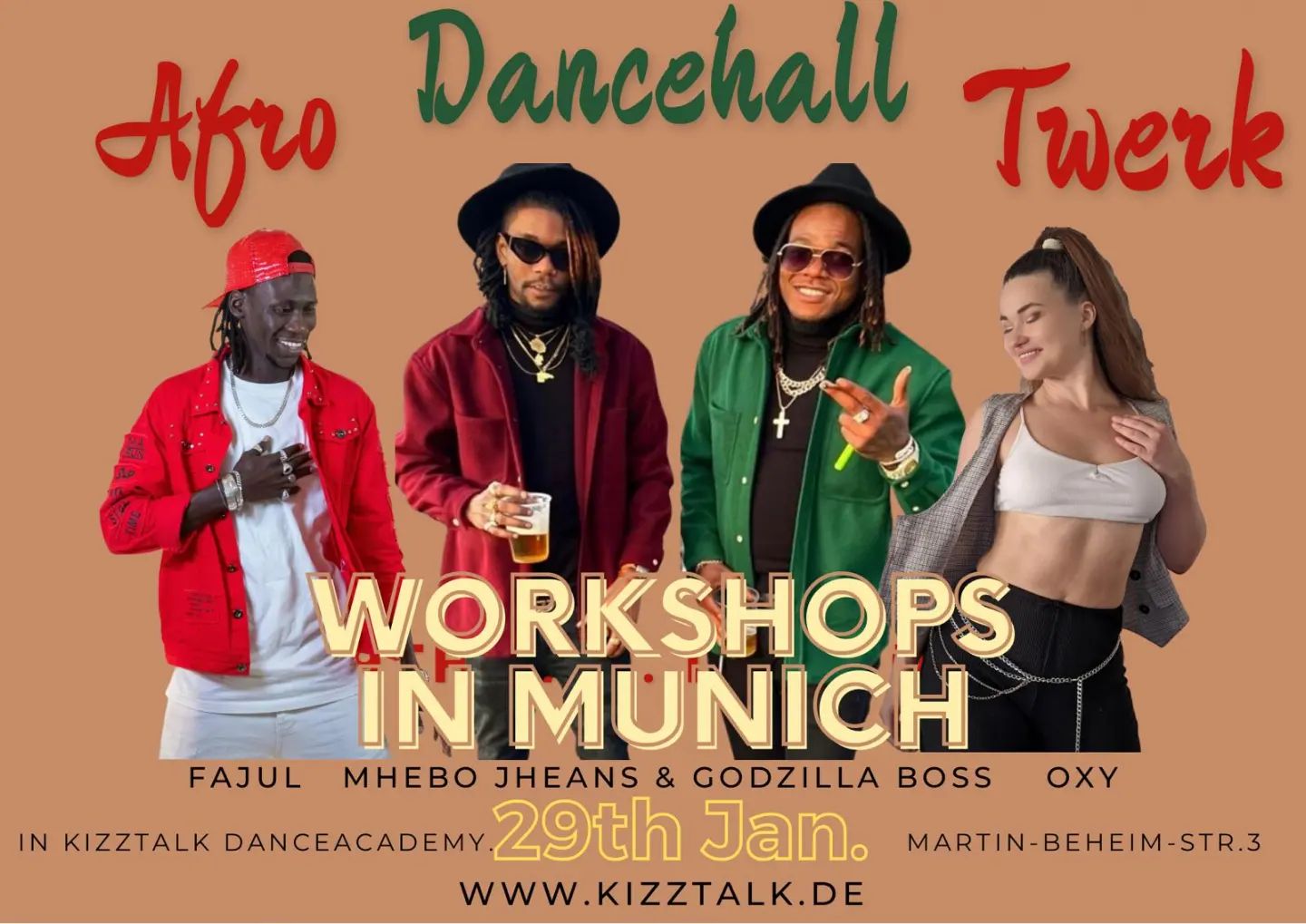
So, Europe, they only think that it's a female ting, but if they go inside and learn the knowledge of it more, it turn a 50-50. Because a man cannot do what a woman do, as you hear Mhebo say, but a woman can also do what a man do. A woman can wine, but also a woman can do dancing like man. The only way a man can dance with a female in our culture and in our music is if that girl is there wining and we go to wine on her. We call it Rubadub back then, we call it Wine Pon and we say Daggering. And Dancehall, if you don't understand us, you will understand us through music, you understand us through the movement, you understand us through the dancing because it's like an entertaining. You can just see us and you just get entertained. We live what we do and do what we live!
There's a lot of discussion right now about cultural appropriation. Seeing that Dancehall culture spread into different countries and a lot of people embrace it and love it and want to learn it, how do you think about that? Is it something good or something bad?
Godzilla: It's nothing bad, you know! Because, watch this, Jamaica is a small island, but it have a huge impact. Before Dancehall now start trending, Dancehall was there, but it wasn't trending trending. If you go on Spotify, one time you will see Reggae music and stuff, you not going to see Dancehall. Now, on Spotify you will see Dancehall music. Now, you see R&B artists trying Dancehall, African artists doing Dancehall, because Dancehall is something that make you feel free. It have its rule because it's we lifestyle and we do certain things in it weh you will feel offended because it's not about the dancing and the music alone, as me tell you before. We live what we do and do what we live. It's a culture, is the people, it's a lifestyle. We sing about it, we dance about it, so it's no problem fi we fi see it trending, but when it trending, we just want people do it with the right way. The same love fi it because in everything, every culture, them have rules. So from you can accept the rules and learn about the rules and this and that, it's perfect.
Mhebo: It's like, this motivate me more, because me out ina Europe now, me haffi think back bout my brothers weh me left, and fi me, fi see di culture spread like this, we haffi make the best a it right now. Cause we said before, it's like a family thing. When we a start this thing, this dancing and stuff, it's a family thing, we have people around, you know? So now, we travel outside, we a spread the culture more, we do this fi dem also. Me woulda like fi see me next brother dem weh dance, who never travel before, like, travel for one three months, teach what they like.
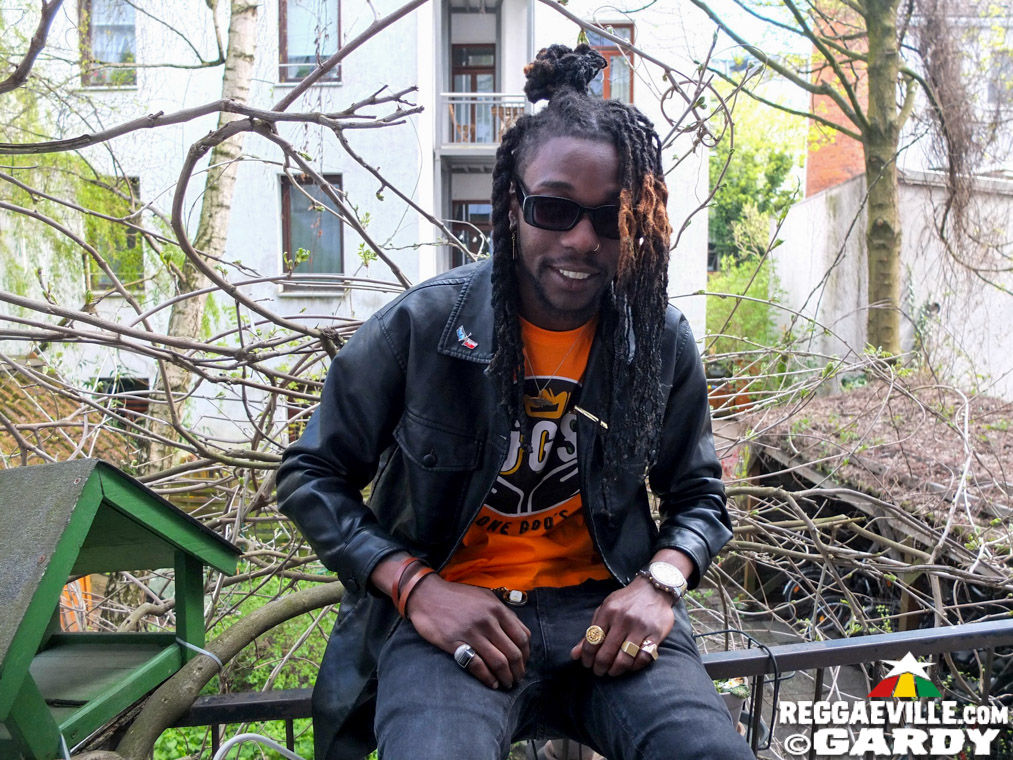
Godzilla: Don't get me wrong: Dancehall is a Jamaica ting. We respect the Europeans dem that classify themselves as a teacher and so forth. But these Europeans, some of them, maybe 85% a them, don't go to a Jamaica class, dem don't go to Jamaica, dem don't know what they are teaching. It's like going to the college, if you don't have information to teach, what am I going to learn? If you come and just teach me choreography, like this and that and that, from what's the meaning behind it? What's the meaning behind Willy Bounce? And you teachers don't even understand the message behind it and stuff, what you teaching your students? We come fi teach, you know! Nuff time we look at some flyers, we see three Jamaicans and maybe ten Europeans and then them say it's a Dancehall event and then you're going to judge. And maybe it's not even the Jamaican dancers dem judging, is the Europeans dem, you know, but sometimes we just hold it and just smile and keep the faith. But then you have some again, like an event in Prague in 2022, you have seven Jamaican dancers, this is so good because even some a dem on di camp, long time I don't see them! One of Mhebo team member was coming also, and long time him no see dem neither. So if you see the unity there and then, feel the energy, it will come like, it a go be crazy. They'll get a different energy and a different vibe. And we don't have no problem with a camp weh have Europeans and Jamaicans mix because it's also a good energy when we mix, because we show people seh we don't really fight against and we like a likkle sharing, we would like to understand you and you understand me and reh, for example if we book pon a show and Lisa is one of the teacher fi example, it's like we a share di energy same way, and during this camp we a get fi know she and she a get fi know we and maybe there's a link de so now set, so… you know what I mean, so it's always a sharing process.
Yeah, I think that's a good way to share the culture, to bring the authenticity also. What role people like Lady Lis play in that thing, keeping up the culture in a certain place, like here in Hamburg, and connecting you with that?
Godzilla: Family! Because watch her go on, and as we still a tell you, Lisa is a white girl, and we are black, we are black, right? We never know her, she never know we. What make she know we, and we know her? Dancehall. Dancehall is something that pull we together. And fi her party, is spread of the good vibes and the goodness of it.
Mhebo: Yeah, which is the main part!
Godzilla: She go Jamaica, what she don't know or understand, she deh a Jamaica, she will come and learn it, she'll get fi learn how we move, how we speak, how we act. And when she deh here, she try fi get the dancers dem here fi come, teach her students, if the dancers dem is not here, she teach fi di knowledge weh she know, what she don't know, she go search fi it.
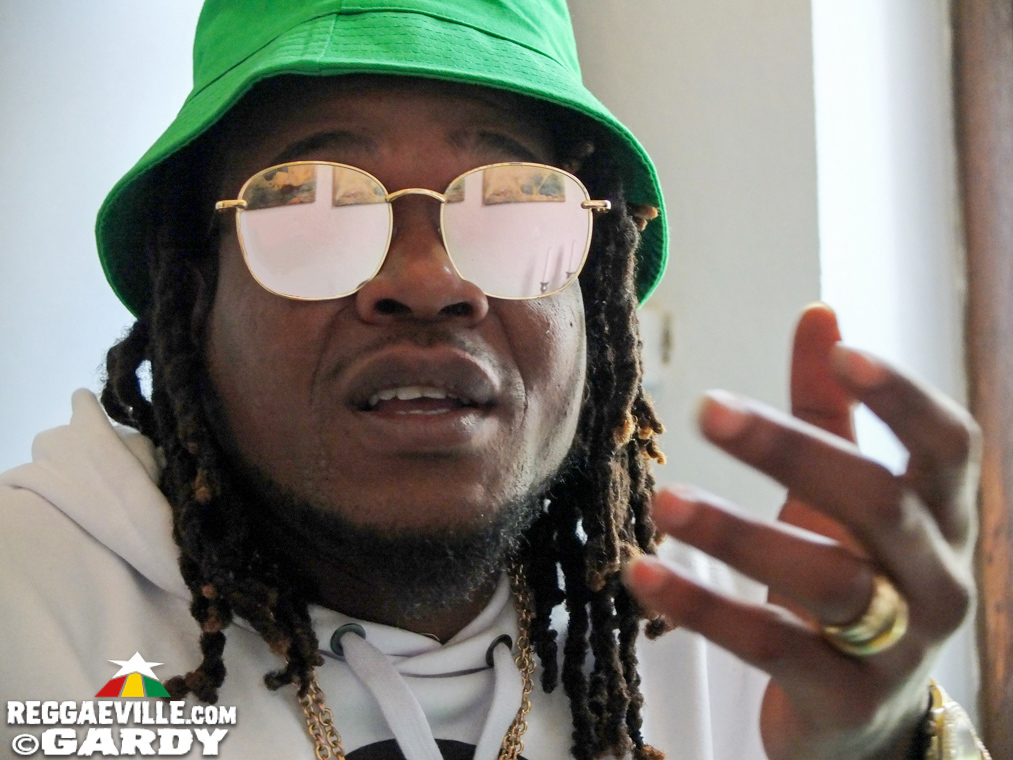
Mhebo: And this is the main part, as we say before, this is the main part of it. Without she, we don't get the opportunity to spread this, because it's not everyone who do this. You still have people in Europe who doing Dancehall, and they don't show this respect. But the ones who show this respect, it's the real ones, it's the main part fi we.
It's so important, because that's part of understanding, as you said, understanding each other, understanding where you come from, what your motivation is to do certain things, to behave certain way. I think that's important to create this togetherness.
Godzilla: Yeah man, it's always about togetherness, that's why we say unity. Unity is strength, and it's always a sharing process, you know what I mean? We deh here right now, it's Lisa's birthday. And she just link we up, says she have a party, all-white party. And she just don't want she and her fellow ones alone, she try share the energy wid we. And when she share it wid we, we were interested, we will come and it was a party nice, so Jesus Christ party nice! (laughs) You know, so she a try fi bring the right energy also, you know what I mean? Yeah man, same with Chris Icon, bless up mi bredda Chris Icon, him know OG'S too, around me also, an him go on good!
And what are your plans for the next years, do you have any projects coming up?
Godzilla: Producing! Me haffi be a producer man, me haffi have some music out there and me haffi do managing for some dancers. And me haffi marry (laughs). I released an EP called Dweet Again with Pablo Morelove, the Italians, Party Nice was released on that one. We have a few more songs pon di EP, and we have a couple more music videos also. I have a mixtape to do in Germany, Munich, with my next producer. I have my bro here, Mhebo, with two songs, we are going to have pon mi mixtape also. So, we not stop dancing, we not stop creating dance, but we start pursuing music on a different base also. So, if you have Spotify, Apple Music, if you type in Nicky Trice, you will see my profile and a few songs that are released and stuff.
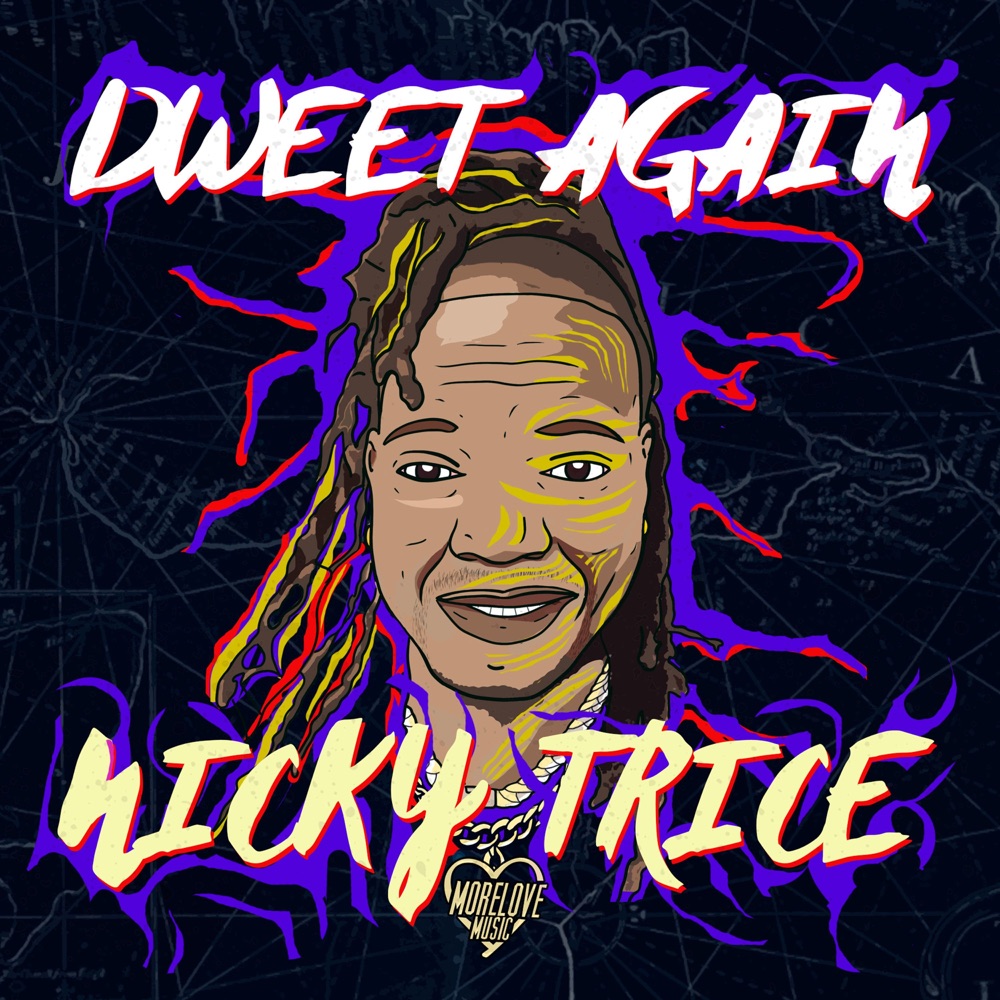
Mhebo: Well, my project for the next years is to help more dancers, because as I say, back in my community, it's a lot more guys like me. And I would like to give them opportunity to travel and see the next part of what they are doing. This is my plan for now, I will do like a dance school in Jamaica, you know, because we have a lot of Europeans still traveling there, so I want to have a place they can come and they meet also other dancers. A whole hostel, you know! And from there I try to get some other dancers here in Europe, so that's my plan for the next years.
And do you still have contact to the old school dancers, I mean they must be like in their fifties now?
Godzilla: Yeah man, me have contact to a whole heap a dem cause as I told you and I'm not a new school dancer, I'm an old school, middle school, new school dancer. We have connections with a lot of old school dancers and we have connection with a lot of new school dancers, so we are connected and we inspire a lot of dancers out there. MOB dance group, Shelly Belly, the Rifical… we inspire a lot of these dance group out there right now speaking, and a lot of them we give them exposure, help a lot of dancers also, even artists, we expose a lot of artists, your song don't say anything and we just dance to it and it becomes something. Ghetto Legacy dem have songs now because Rudie Legacy now start doing some music also, we have to big up Rudie Legacy, you know, him have nice culture music out now also… Dancehall, you haffi be there in the streets, that's where everything is happening.
Wow, thanks, that's a lot of information! If you have anything to add, feel free to do so!
Godzilla: What me want say is, we have OGS brands right now (shows shirts) and we keep it moving. You can get them as shirts, jackets, sweat pants… We're planning to set up our online shop also, but for the time being I just travel with some of them. Feel free to get yours!
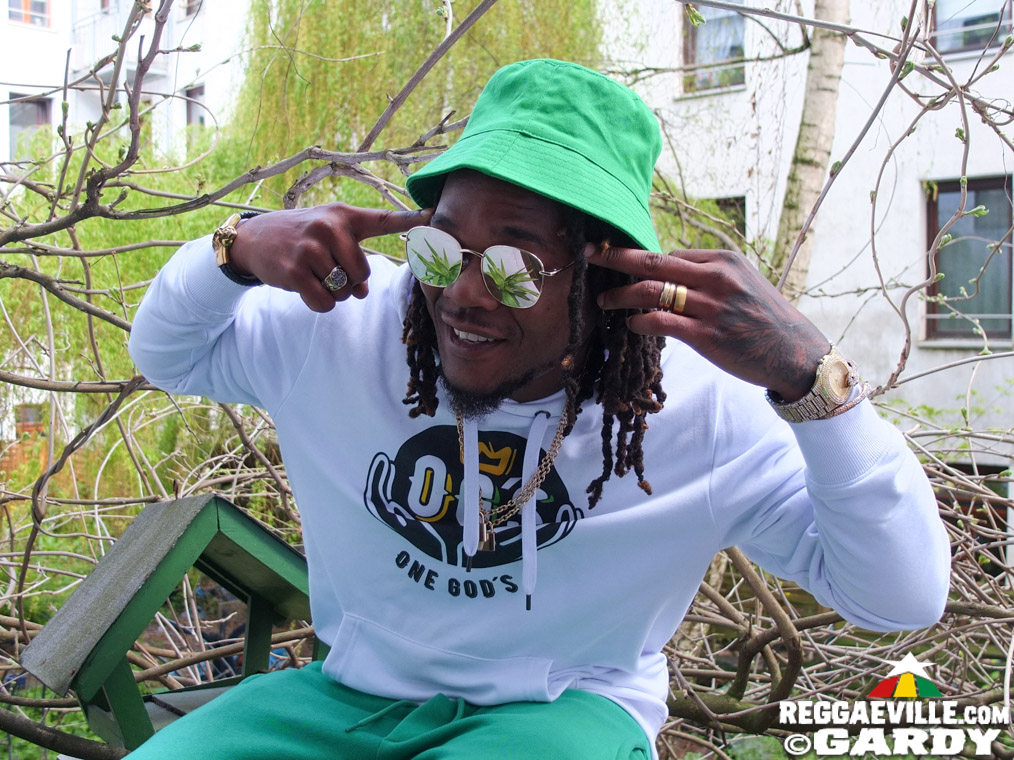
Mhebo: All me can say now fi di younger youths weh come now – a just love and unity. Yeah, because we see a bigger picture now. More of us from out of Jamaica, we are in Europe now and we can do bigger, you know? You don't just come to Europe one month you go back and you say, "Oh, I stop dancing." Because it's more bigger than this. Yeah, so, all dem haffi do now, we just unite with each other. Because Jamaica is really small, you know.
Godzilla: We just need some help. Jamaican dancers, we just need some really serious help. You know what I mean? And before we go for real, I want say "Ich liebe dich, ich liebe euch!" (German for 'I love you'). Cause, you know, we deya, we understand piece a di language also, we'll also learn from your culture. Keep focused, believe in yourself, hype yourself. And any director out there want a movie to shoot? Contact us. We are superstars. We are super actors here. And it's nice to meet you all.




